Saint Paschal Baylon, devoted servant of the Eucharist and humble witness of Christ, intercede for us that we may grow in faith, love, and devotion to the Holy Eucharist. Help us to follow your example of purity, service, and compassion. Obtain for us the strength to live out our faith with courage and joy. Through your intercession, may we be drawn closer to Christ, who lives and reigns with the Father and the Holy Spirit, now and forever. Amen.
ST. PASCHAL BAYLÓN
ST. PASCHAL BAYLÓN
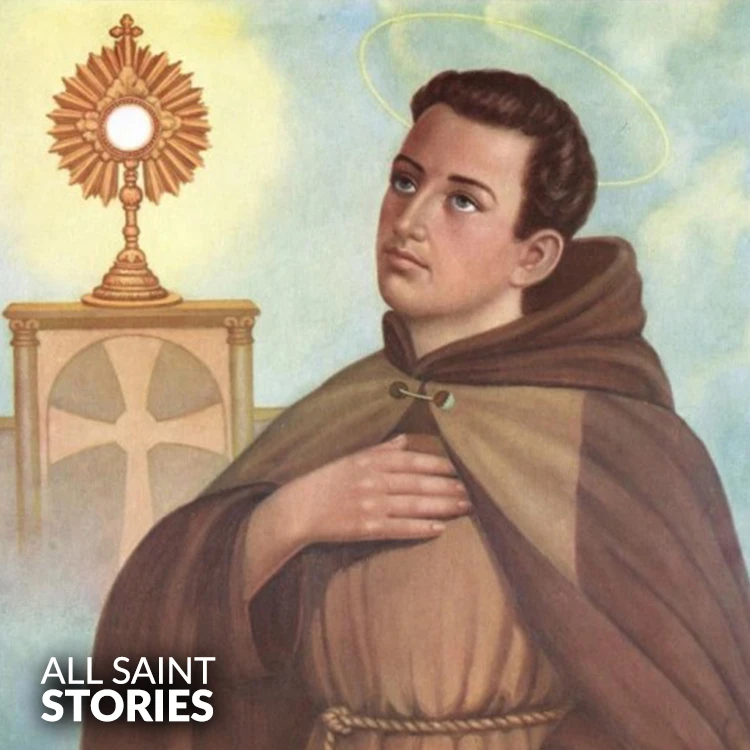
St. Paschal Baylón was a humble Spanish Franciscan lay brother known for his profound devotion to the Eucharist. His life of simplicity, penance, and prayer made him a model of holiness in the 16th century.
St. Paschal Baylón was born on May 16, 1540, in Torrehermosa, a small village in the Aragon region of Spain, to a family of humble peasants. From an early age, Paschal demonstrated deep piety, humility, and a profound love for God, which set him apart from his peers. Though his family was poor and he had little access to formal education, he taught himself to read and write while tending sheep, using leaves and stones to form letters.
His childhood was marked by simplicity, solitude, and prayer. He became deeply aware of the presence of God in nature and in silence, and he often spent hours in contemplation. By his teenage years, Paschal had already developed a strong devotion to the Eucharist, which would become the defining element of his spiritual life.
In his early twenties, Paschal felt a call to religious life and sought entrance into the Reformed branch of the Franciscan Order known as the Alcantarines. He was received as a lay brother at the convent of Our Lady of Loreto in Valencia in 1564. As a lay brother, he did not become a priest but instead performed the more humble tasks of the monastery: serving in the kitchen, collecting alms, and working in the fields. He did all of this with remarkable humility and joy, seeing every task as a way to serve Christ.
Paschal's devotion to the Eucharist was so profound that he would spend hours in front of the tabernacle in silent adoration. His reverence for the Blessed Sacrament earned him a reputation as a mystic, and many witnesses reported seeing him enter into ecstasies during prayer. He also had visions and was known to be the recipient of miraculous gifts, including healing and prophecy.
He once traveled across France to defend the doctrine of the Real Presence of Christ in the Eucharist during a time when the Church faced challenges from Protestant reformers. Despite his status as a lay brother, his wisdom and holiness impressed theologians and clergy alike. He remained obedient to his Franciscan superiors, lived in extreme poverty, and practiced severe penance. He was also known for his cheerful disposition, generosity, and deep compassion toward the poor and sick.
Paschal died on May 17, 1592, on the feast of Pentecost, after a brief illness. His death occurred at the monastery in Villarreal, where he had spent the latter part of his religious life. After his death, numerous miracles were attributed to his intercession, especially related to the Eucharist.
Pope Paul V beatified him in 1618, and Pope Alexander VIII canonized him on October 16, 1690. Later, Pope Leo XIII declared him the patron saint of Eucharistic congresses and societies in 1897, further affirming his legacy as a model of Eucharistic devotion.
Today, St. Paschal Baylón is remembered as a powerful intercessor for those who seek a deeper relationship with the Eucharist and a life of humility and charity. His feast day is celebrated on May 17, the day of his death, which coincided with the very feast of the Holy Spirit, Pentecost.
Video Not Found
The information on this website is compiled from various trusted sources. While we aim for accuracy, some details may be incomplete or contain discrepancies.
If you notice any errors or have additional information about this saint, please use the form on the left to share your suggestions. Your input helps us improve and maintain reliable content for everyone.
All submissions are reviewed carefully, and your personal details will remain confidential. Thank you for contributing to the accuracy and value of this resource.
Credits & Acknowledgments
- Anudina Visudhar (Malayalam) – Life of Saints for Everyday
by Msgr. Thomas Moothedan, M.A., D.D. - Saint Companions for Each Day
by A. J. M. Mausolfe & J. K. Mausolfe - US Catholic (Faith in Real Life) – Informational articles
- Wikipedia – General reference content and images
- Anastpaul.com – Saint images and reflections
- Pravachaka Sabdam (Malayalam) – Saint-related content and insights
We sincerely thank these authors and platforms for their valuable contributions. If we have unintentionally missed any attribution, please notify us, and we will make the correction promptly.
If you have any suggestion about ST. PASCHAL BAYLÓN
Your suggestion will help improve the information about this saint. Your details will not be disclosed anywhere.
© 2026 Copyright @ www.allsaintstories.com

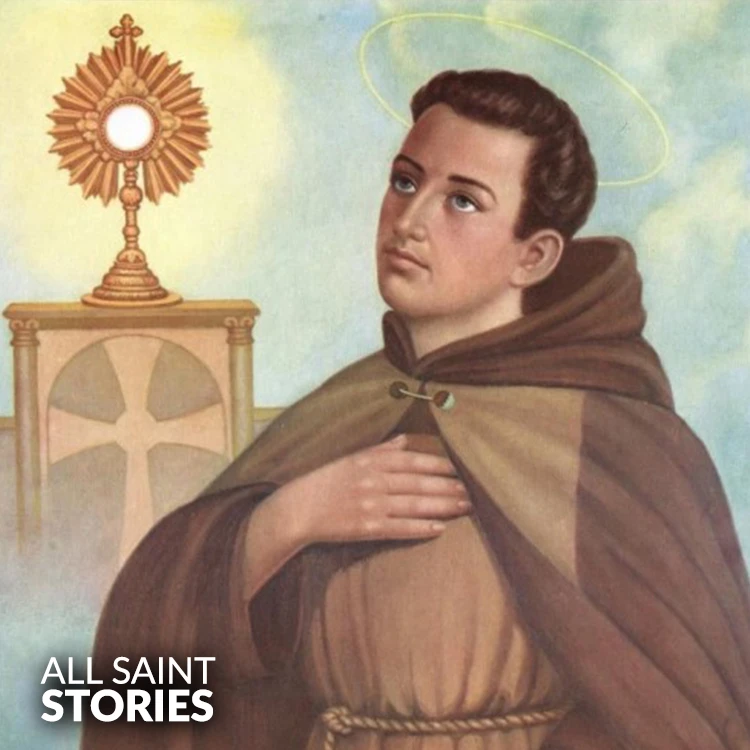
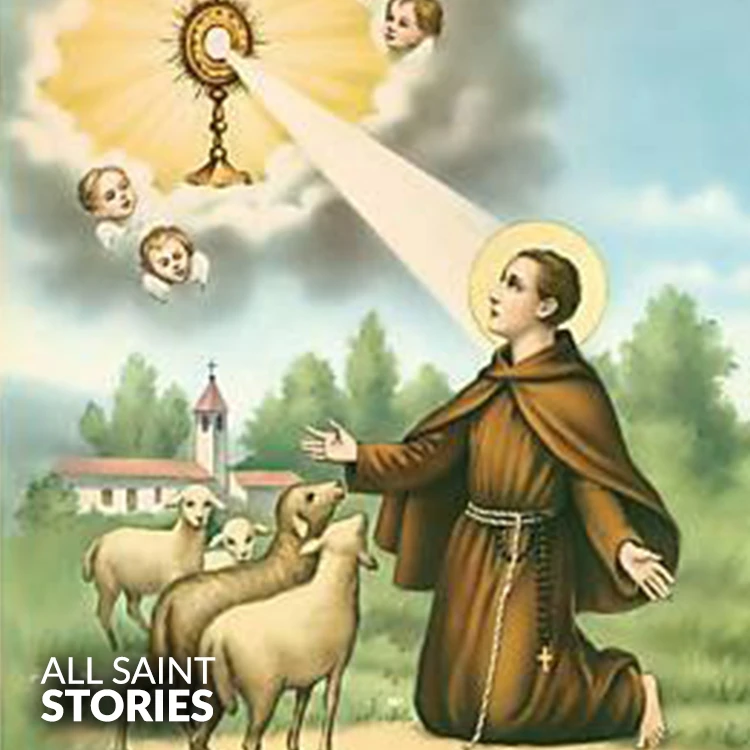
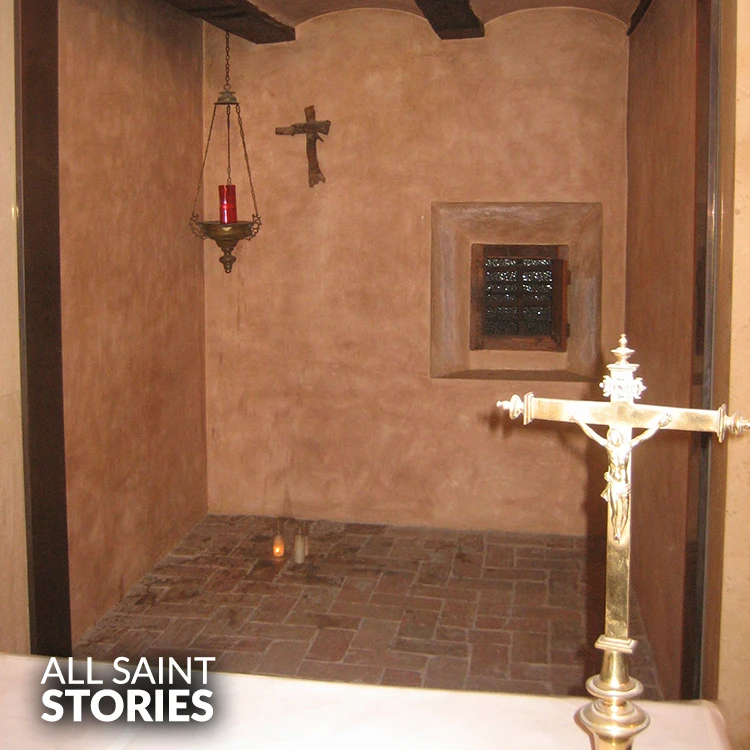
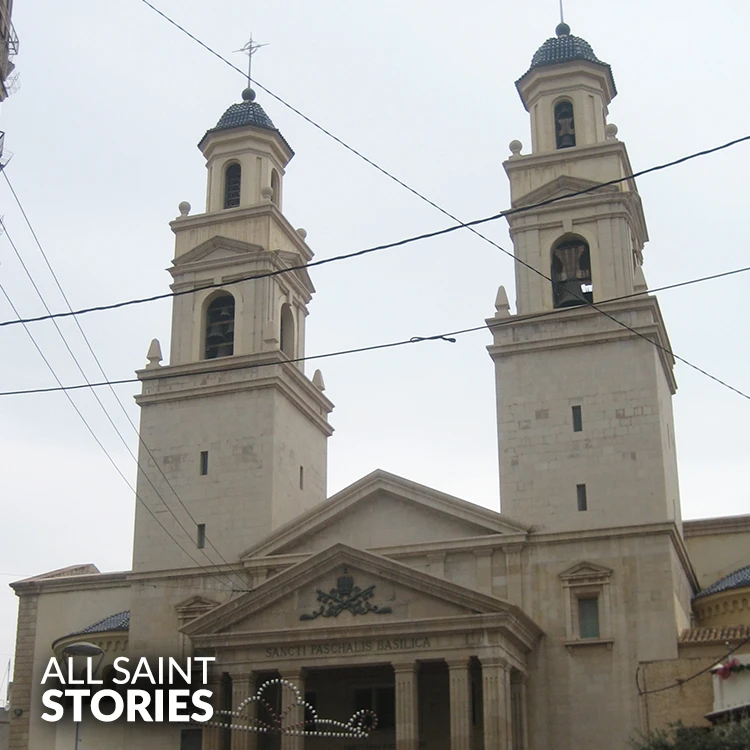
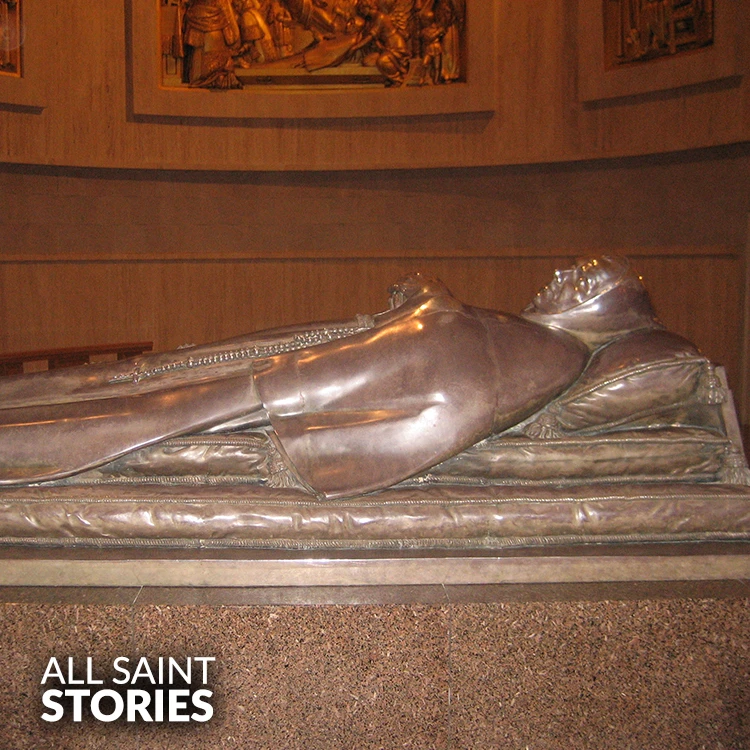
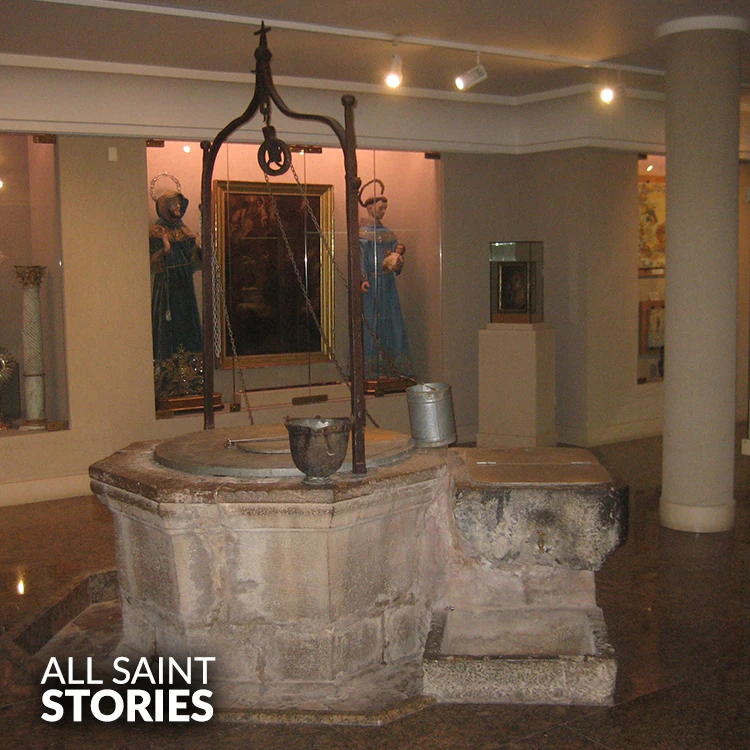

 English
English
 Italian
Italian
 French
French
 Spanish
Spanish
 Malayalam
Malayalam
 Russian
Russian
 Korean
Korean
 Sinhala
Sinhala
 Japanese
Japanese
 Arabic
Arabic
 Portuguese
Portuguese
 Bantu
Bantu
 Greek
Greek
 German
German
 Dutch
Dutch
 Filipino
Filipino